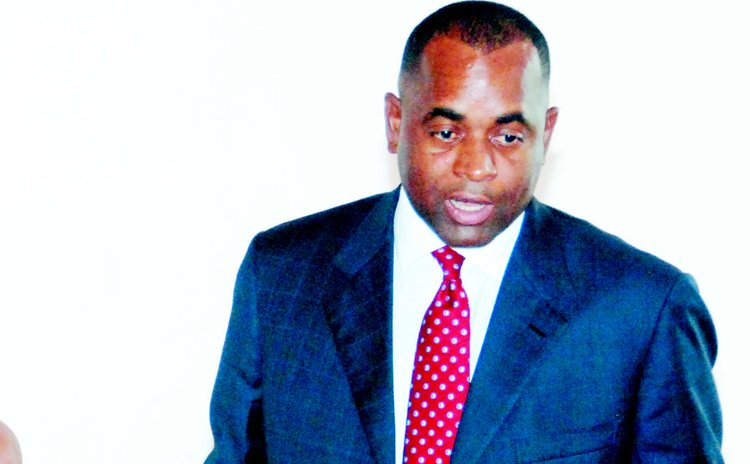The Economy in 2013

No Surprise Budget
"There will be no new taxes and no unrealistic promises," said Prime Minister Roosevelt Skerrit as he presented his government's 475 million dollar budget for the 2013 to 2014 fiscal year.
Addressing Parliament in June, Skerrit advised Dominicans that the world economic crisis has not abated, as many persons expected, his budget had to reflect that reality.
Placing Dominica's economy in relation to regional and international trends, Skerrit said growth of Gross Domestic Product (GDP) for 2012 was 0.1 percent.
"The economy is projected to grow by 1.6 percent in 2013 and by a further 1.7 percent in 2014 supported by improvements in the agriculture, construction, and tourism sectors," Skerrit said.
In 2012, Skerrit said, agriculture accounted for 12.3 percent of GDP and there was positive growth in all sub-sectors of agriculture except bananas which saw a 23.5 percent decline in production.
"In 2013, the sector is expected to expand by 1.3 percent. This is supported by a turnaround in activity within the banana subsector as banana production is expected to increase by 3.1 percent," he predicted. "Positive growth rates in all the other subsectors will keep the sector as a whole on a positive growth trend". There was also decline in tourism, by 1.6 percent in 2012, due mainly to the under-performance of the cruise sub-sector.
As far as the government's financial position is concerned, the Value Added Tax (VAT) continued to buttress the finances of the State, the Prime Minister suggested.
In agriculture, the government expected to invest in the construction of a coffee plant and over the next three years farmers would be motivated to establish and rehabilitate 500 acres of coffee.
Skerrit said his government would also aim at transforming the livestock sub-sector through a pork and poultry production programme.
To solve part of the marketing problem affecting agricultural production, Skerrit said government had allocated $4 million for the purchase of an appropriate refrigerated cargo vessel.
In tourism, the government hoped to address the problem of inadequate rooms in the hotel sector by the construction of a five –star hotel in the area now occupied by the Public Works Garage in Goodwill, and the commissioning of the Moroccan Hotel under construction at Portsmouth.
In his budget address Prime Minister Skerrit said his government would be doubling its effort at the creation of jobs.
Private Sector called for help in 2013 The list of ailments for which the private sector sought relief from in the 2013 budget, ranged from energy costs to visitor safety; from air access to the abaist nuisance that is the Value Added Tax (VAT).
The private sector organizations were evangelical about getting these matters resolved, and while a press release provided few details of their demands, The Sun obtained documents which outlined their gravest concerns and prescriptions for a more permanent cure.
The issues that they were concerned about included: visitor safety, increased visitor arrivals and spend, urgent negotiations with LIAT regarding establishing reliable and affordable services, decreased energy costs, and a reduction of VAT on all tourism services to 10 per cent and a reduction of the tax on the accommodation sector to 7.5% or lower.
Think Big
Meanwhile, Ian Douglas, the tourism minister said that tourism would generate EC$300 million in 2013. But reality told a different story, many observers suggested when Douglas made that pronouncement.
To critics like Athie Martin, a former president of the Dominica Hotel and Tourism Association (DHTA), this may very well be the hubristic fantasies of a disillusioned speculator in charge of a sector that has been desperately dancing with doom.
For instance, there was the issue of occupancy rate that made the projects seem fanciful. "Some top properties are below 10 per cent," the hotelier explained at the time.
France Blacklisted Dominica
Dominican awoke one morning in 2013 to learn that their country was included in a list of countries blacklisted by France for not helping to investigate foreign aid fraud.
Consequently, French officials said they would be banning the use of their banks to help distribute development funds.
The blacklist expanded on an already-established register of eight "non-cooperative states and territories" that already included Botswana, Brunei, Nauru, Guatemala and the Philippines and added Switzerland, Lebanon, Panama, Costa Rica, the United Arab Emirates, Dominica, Liberia, Trinidad and Tobago, and Vanuatu.
Prime Minister Roosevelt Skerrit said his government was unaware of that issue with the French government.




